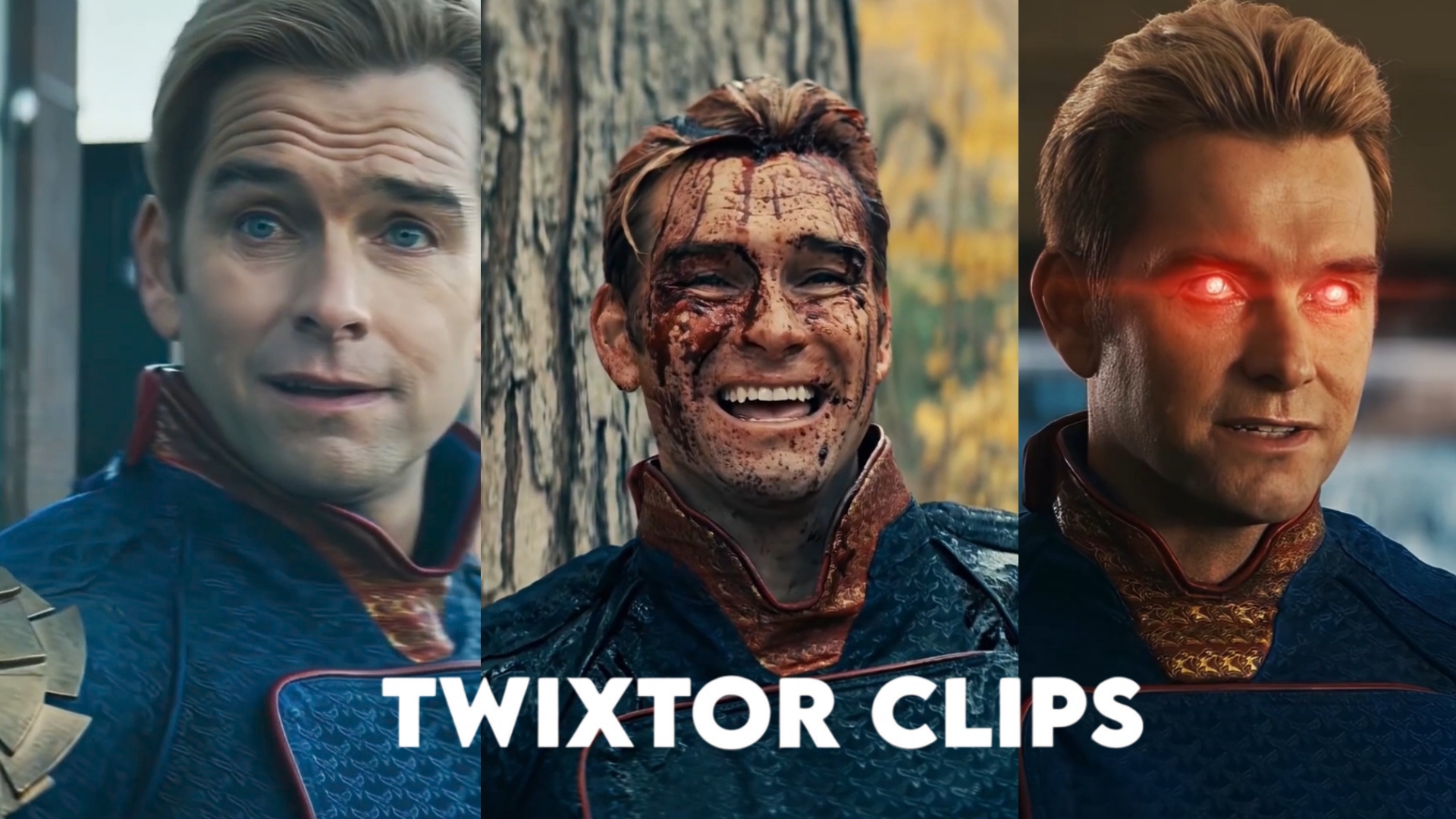♦ANIME WORLD TWIXTOR CLIPS♦
Download Movies Twixtor for Edits : https://moviestwixtor.com/movies-twixtor/
Download Series Twixtor For Edits : https://moviestwixtor.com/movies-clips/
Download Anime Twixtor for Edits : https://animeworldtwixtor.com/
Subscribe to Youtube Channel For More Clips & Twixtors : YOUTUBE
Text Me on Instagram To Request Twixtor / Clips / Promotion : RDJ EDITS / ANIMEWORLD
Homelander Twixtor
Homelander: The Dark Mirror of American Heroism
Homelander is the central antagonist of The Boys, a satirical superhero series based on the comic books by Garth Ennis and Darick Robertson. Portrayed by Antony Starr, Homelander is the leader of The Seven—a superhero team owned by the powerful corporation Vought International. To the public, he’s seen as the perfect American hero: patriotic, noble, and unstoppable. Behind the curtain, however, he is a sociopathic, narcissistic, and deeply unstable individual, making him one of the most chilling and complex villains in modern television. Homelander Twixtor Homelander Twixtor Homelander Twixtor Homelander Twixtor Homelander Twixtor Homelander Twixtor Homelander TwixtorHomelander Twixtor v Homelander Twixtor
Powers and Public Persona
Homelander possesses powers similar to Superman—super strength, flight, laser vision, near invulnerability, and heightened senses. However, unlike Superman, his powers are not paired with a moral compass. Instead, he uses his abilities to assert control, manipulate others, and pursue his own agenda. To the outside world, he appears flawless. He waves the American flag, smiles for cameras, saves civilians (when convenient), and speaks in patriotic slogans. This carefully crafted image is a product of Vought’s marketing machine, meant to conceal the real monster lurking beneath the surface.
Psychological Profile
At the core of Homelander’s terrifying personality is a deeply fractured psyche. He was raised in a lab without parents or emotional attachment, denied any sense of true love or belonging. This isolation created a man who craves adoration and control in equal measure. He demands constant validation from the public and his peers, and reacts with anger and cruelty when he feels slighted or disrespected. His need for attention makes him incredibly dangerous—he doesn’t just want to be loved; he needs to be worshiped.
Homelander is a textbook narcissist. He believes himself to be superior to everyone else, including fellow superheroes. He views ordinary humans as weak and disposable, often showing disdain or outright hatred for them. Yet, his inner child remains hungry for approval. This contradiction—godlike power combined with emotional immaturity—is what makes him so volatile. His moments of calm can turn to terrifying violence without warning.
Relationship with The Seven and Vought
Although he leads The Seven, Homelander sees the other members as tools or threats. He often manipulates or intimidates them to maintain his authority. His relationship with Queen Maeve, in particular, is complex—marked by fear, resentment, and control. Maeve, one of the few who sees through him, is often caught between survival and resistance.
With Vought, Homelander plays a double game. While he publicly supports the company, he secretly resents being controlled. Over time, he begins to push back against Vought’s leadership, especially when he realizes he could operate independently. His relationship with Madelyn Stillwell, a Vought executive who once controlled him through emotional manipulation, illustrates how much he craves maternal attention—even when it’s artificial.
Symbolism and Cultural Commentary
Homelander is more than just a villain—he’s a symbol of unchecked power, corporate propaganda, and the dark side of American exceptionalism. His red, white, and blue suit, combined with his nationalistic speeches, serve as a critique of how patriotism can be weaponized. In a world where heroes are products, Homelander is the ultimate brand: shiny on the outside, rotten within.
He represents what happens when image matters more than integrity. While the public cheers for him, he murders innocents, manipulates the media, and covers up scandals. His existence challenges viewers to question authority figures, media influence, and the nature of real heroism.
A Villain Unlike Any Other
What sets Homelander apart from traditional supervillains is his terrifying believability. He doesn’t want to destroy the world—he wants to own it, emotionally and physically. He doesn’t hide in the shadows; he dominates the spotlight. His evil isn’t theatrical—it’s subtle, methodical, and disturbingly rational. He’s terrifying because he embodies real-world dangers: unchecked power, toxic masculinity, and narcissistic leadership.



